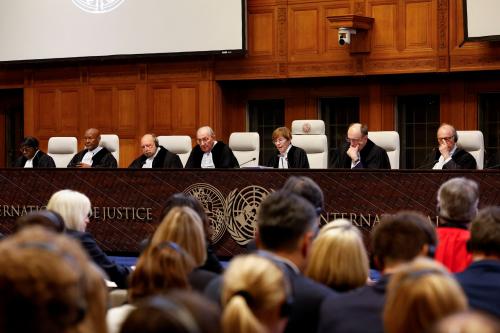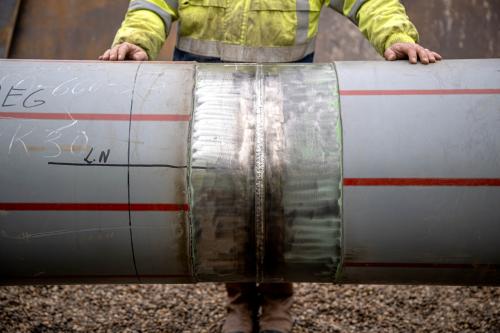Fears of anti-Semitism are rising again in Europe. They have been stoked in particular by a growing number of verbal and physical attacks on Jews not only in France, but also in Britain, Belgium and elsewhere in Europe. As both French government and Jewish leaders have been quick to emphasize, such incidents are not the product of traditional, right-wing anti-Semitism. A report commissioned by the European Monitoring Centre on Racism and Xenophobia (EUMC) confirmed what had been widely asserted by French commentators: the perpetrators of the attacks have overwhelmingly been Muslim youths, usually second-generation immigrants.2 France is now seen as a new battleground in the communal conflict between Muslims and Jews, effectively extending the Israeli-Palestinian conflict into the heart of Europe.
The perception of a Jewish-Muslim communal conflict, however, has been be highly exaggerated. Indeed, Jewish community leaders in the suburbs of Paris and other large French cities—where Jews and Muslims live side by side—tend to give a very different interpretation of these events. “Physical or verbal aggressions [towards Jews] may happen daily,” according to the former President of the Jewish community of Sarcelles, a city north of Paris, “but they are not serious. … In 2001, a small commission was set up in which cooperation between community leaders and the government functions perfectly.”3 Thus, for example, when a school was ransacked in Sarcelles on July 28, 2001 and April 1, 2002, no generalized ethnic strife followed. Violence, including anti-Semitic violence exists, but that violence does not comes from organized groups and does not represent the sentiment or even the strategy of either community. All the mainstream groups and the leaders of both communities condemn the violence and, as the situation in Sarcelles demonstrates, are taking concrete and genuine steps to limit it.
Why, then, has the debate provoked such a furor in France and elsewhere, and why now? The most basic reason is that the Israeli-Palestinian violence of the last three years is often seen as pitting Jew against Arab everywhere in the world. There is a widespread assumption that the sporadic Jewish-Arab violence in France forms a European extension of that conflict. On one level, this is undeniable: the majority of the anti-Semitic violence in France has been committed by young North Africans who have been influenced by images of the Israeli-Palestinian conflict seen on national television and on Arab satellite channels as well as by the sermons of radical imams. But looking at the issue more deeply, the violence perpetrated by Muslims in France is more an expression of the general and unfocused discontent present in the French Muslim community. That discontent stems not essentially from concerns over Palestinian suffering but rather from the difficult process of political, social, and economic integration into French society. In a similar fashion, the Jewish reaction to the violence has less to do with Israeli-Palestinian conflict or indeed with their fear of the Muslim community than with their general fears of a resurgence of latent anti-Semitism within the larger French population.
View Full Article (PDF—88kb) Get Adobe Acrobat Reader
The Brookings Institution is committed to quality, independence, and impact.
We are supported by a diverse array of funders. In line with our values and policies, each Brookings publication represents the sole views of its author(s).



Commentary
Muslim and Jews in France: Communal Conflict in a Secular State
March 1, 2004